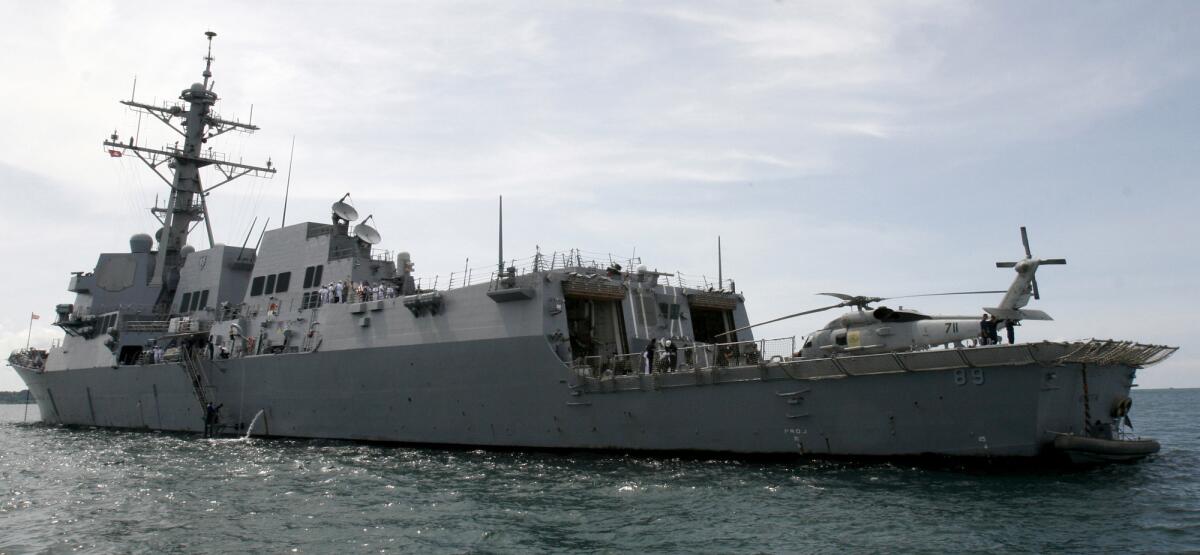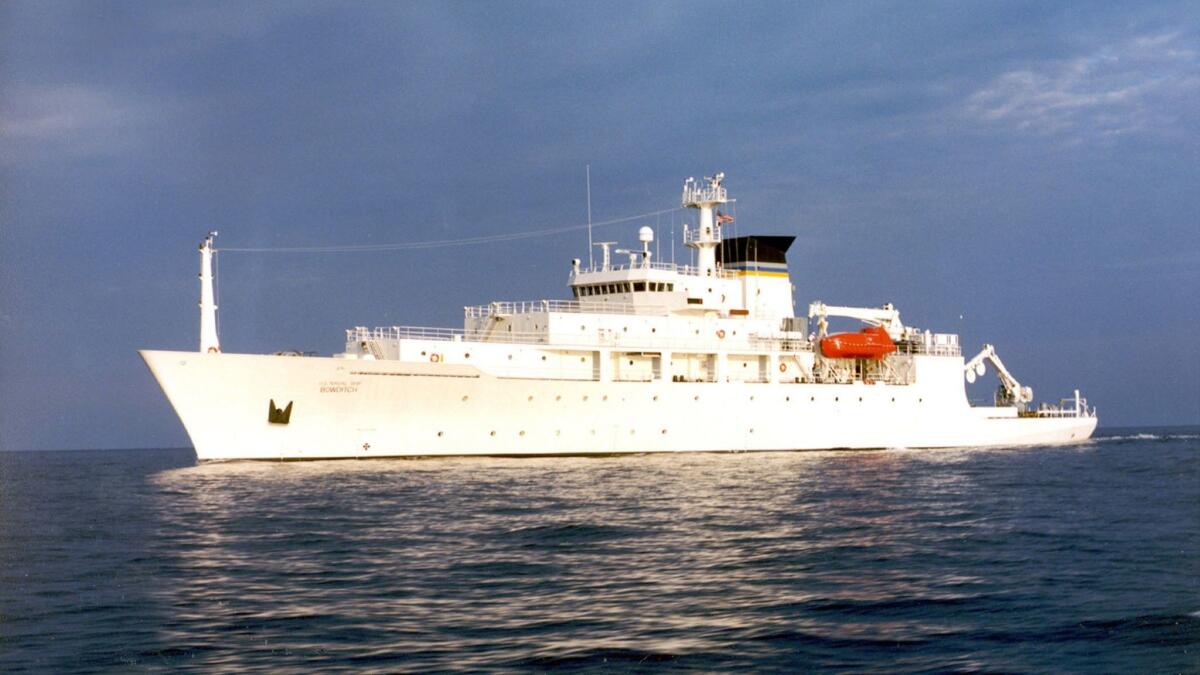China returns seized U.S. sea drone, concluding standoff

China on Tuesday gave back an American underwater drone that its navy seized last week, ending a standoff that engaged President-elect Donald Trump and risked ballooning into a larger confrontation.
The Chinese Ministry of Defense said it handed over the drone in the South China Sea after “friendly negotiations by both sides.”
A Pentagon statement confirmed a Chinese vessel returned the drone to a U.S. Navy ship near where it disappeared, but couched the resolution in less generous terms.
“The incident was inconsistent with both international law and standards of professionalism for conduct between navies at sea,” said Peter Cook, a Department of Defense spokesman.

The statement called on China “to refrain from further efforts to impede lawful U.S. activities.” And it stressed this would not impede America’s effort to maneuver through contested waters, where trade and territorial claims collide.
Tensions began last week after a Chinese naval ship grabbed the drone just as the Bowditch, a U.S. oceanographic survey vessel, prepared to retrieve it. China’s defense ministry said its sailors picked up an unidentified vessel and needed to verify it did not pose a threat. The incident occurred about 50 nautical miles from Subic Bay, a major Philippine port and former U.S. military base.
U.S. officials have said the drone was used for scientific research, including collecting data on water salinity and surveying the ocean bottom.
The Pentagon requested it back. But Trump, who has riled Beijing with hints that he would abandon longstanding U.S. policy toward Taiwan, accused the Chinese of taking the drone maliciously.
He called the seizure “an unprecedented act” on Twitter last Saturday, and once Chinese agreed to return it, said the U.S. “should tell China that we don’t want the drone they stole back.”
A number of China’s neighbors also stake claims in the South China Sea. They have watched with trepidation as Beijing has built artificial islands and military facilities in the disputed waters. The U.S. has not taken a position on the claims, but strongly emphasizes freedom of navigation.
The drone situation led officials on both sides to hint at potential espionage.
“The Chinese are able to do a thing called reverse-engineering, where they are able to, while they hold this drone, able to find out all the technical information,” Sen. John McCain (R-Ariz.), the Senate Armed Service Committee head, said Sunday on CNN. “And some of it is pretty valuable.”
The Chinese government previously voiced concerns about America’s naval actions in the region, and used the drone scenario to reiterate its point.
“China firmly opposes the frequent appearance of U.S. military aircraft and vessels in waters facing China for close-in reconnaissance and military surveys,” Hua Chunying, a Chinese Foreign Ministry spokeswoman, told reporters Monday.
She declined to weigh in on Trump’s tweets. But the Communist Party-run Global Times had no problem doing so.
“Trump is not behaving as a president who will become master of the White House in a month,” the paper wrote in an editorial Sunday. “He bears no sense of how to lead a superpower.”
The editorial warned his handling of the drone saga showed he would treat U.S.-China relations “as child’s play.”
Meyers is a special correspondent. Yingzhi Yang in the Times’ bureau contributed to this report.
ALSO
Dissident Chinese artist Ai Weiwei finds home too dangerous, but he may go to Syria
What Taiwan hopes the Trump call could do for its international standing
More to Read
Start your day right
Sign up for Essential California for news, features and recommendations from the L.A. Times and beyond in your inbox six days a week.
You may occasionally receive promotional content from the Los Angeles Times.






